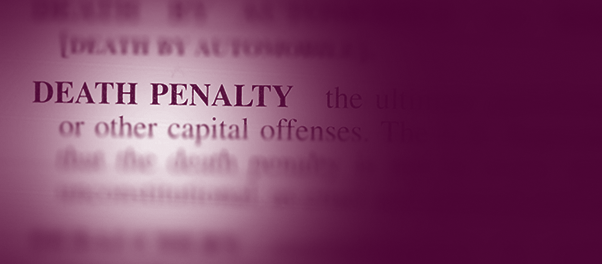- Reforming Death Penalty Standards
- Evolution of the Death Penalty in the United States
- The Death Penalty and Mental Illness
- Mental Illness Among Death Row Inmates
- Public Opinion and Legal Protections
- Execution Volunteers
- Racial Disparities and Mental Health Treatment
- Moving Forward
- Resources & Advocacy Groups
- Conclusion
- Additional Resources
Reforming Death Penalty Standards
As attitudes continue to evolve, there is increasing pressure on policymakers to reconsider the death penalty's role within the justice system and emphasize rehabilitation and therapeutic justice over capital punishment. Amid these discussions, the intersection of mental illness and the death penalty has garnered attention. Studies suggest that individuals with severe mental illnesses are disproportionately represented on death row, which raises critical ethical and legal questions about the application of capital punishment to vulnerable populations. This has spurred advocacy for legislation that would exempt those with significant mental impairments from facing the death penalty, underscoring a move towards a more compassionate and equitable justice system.
Evolution of the Death Penalty in the United States
Execution has been a part of American culture since before the colonies were established, with the first recorded execution occurring in Virginia in 1608 when George Kendall was executed by firing squad for spying. Since then, up till 2022, approximately 16,047 people have been executed in the United States under government authority.
Since the founding of the United States in 1776, there has been a significant fluctuation in consensus on the death penalty policy. Although the Eighth Amendment was ratified in 1791, it did not stop executions but has prompted numerous legal challenges, especially concerning execution methods. While states like Michigan have abolished the death penalty since 1852, others, like Texas, execute more individuals annually than some states have in their entire history.
Furman v. Georgia
The landmark Furman v. Georgia decision, consolidated with Jackson v. Georgia and Branch v. Texas, temporarily halted capital punishment across the United States. A Gallup poll before the ruling showed a near-even split between supporters and opponents of the death penalty. The case involved William Henry Furman, an African American man with limited education, who accidentally killed a homeowner during a burglary. Convicted and sentenced to death, Furman's appeal challenged the constitutionality of the death penalty's arbitrary application and the excessive discretion granted to juries. On June 29, 1972, the Supreme Court ruled 5-4 that such practices were unconstitutional, mandating re-sentencing for those on death row to non-capital punishments. This case was a turning point in the debate over the death penalty, particularly in relation to mental illness and the fairness of its application.
Rather than settling the debate, the Furman ruling galvanized activists on both sides. Within a day, five states began drafting compliant death penalty laws, and by 1975, death sentences surged, underscoring the persistent national divide over capital punishment.
Gregg v. Georgia
In Gregg v. Georgia (1976), alongside two other simultaneous decisions, Jurek v. Texas and Proffitt v. Florida, the Supreme Court held that the death penalty was not inherently unconstitutional nor contrary to evolving standards of decency. The Court clarified that the death penalty could be constitutional if applied through a structured system that prevents arbitrary practices. Key requirements include bifurcated trials to separate determinations of guilt and sentencing, narrowly defined criteria for capital crimes, opportunities for defendants to present mitigating evidence, and automatic appellate review of death sentences to ensure fairness and consistency. According to the Court, this framework aligns with contemporary values and meets constitutional standards, thus permitting sentencing and execution under these regulated conditions.
The Death Penalty and Mental Illness
Individuals with severe and persistent mental illnesses are disadvantaged within the legal system. The concept of “Justice” becomes an illusion when these individuals, despite the Eighth Amendment of the United States Constitution, are not adequately protected from the possibility of the death penalty. The vulnerability of mentally ill individuals within the legal system begs the question, “Should mental illness exclude a person from receiving the death penalty?”
- Protection & Advocacy for Individuals with Mental Illness (PAIMI) Program: This program offers legal-based advocacy services to protect and advocate for the rights of individuals with serious mental illnesses (SMI) and significant emotional disturbances (SED) for children.
- NAMI (National Alliance on Mental Illness): NAMI provides a guide on navigating legal issues for those with mental illness, including how to find legal help through local legal aid services and a lawyer referral service of attorneys experienced in handling cases involving mental health conditions.
- Mental Health America: Mental Health America advocates for the diversion of individuals with mental health and substance use conditions from the criminal justice system into appropriate community-based treatment.
Mental Illness Among Death Row Inmates
Empirical research has consistently found that the prevalence of mental illness among individuals sentenced to death is between 40-50%, compared to 22.8% of the broader population. However, it is posited that this percentage may be higher because of underreporting and inadequate mental health attention in the legal system. Fundamental questions about the fairness and humanity of the death penalty should be raised, especially when those with significant psychological concerns are the subject.
Public Opinion and Legal Protections
The American public has expressed growing concern over the execution of individuals with severe mental illnesses. A 2019 Gallup poll found that 60% of Americans oppose executing people with serious mental health conditions. Despite this shift in public opinion, constitutional protections remain minimal. While having a mental illness can be presented as a mitigating factor during the sentencing phase of a capital trial, it does not exempt an inmate from receiving the death penalty.
Execution Volunteers
The phenomenon of "execution volunteers," is troubling, the term refers to individuals who waived key trial or appeal rights to facilitate their execution. In 1976, nearly 10% of the people executed were individuals who gave up appeals, and over 75% of these individuals had documented mental illnesses. Decisions to waive appeals may be driven by depression, hopelessness, or delusional thinking rather than a rational desire to face consequences (DPIC, 2021). This high percentage raises ethical concerns about the voluntariness of such decisions and whether the legal system is, in effect, facilitating state-assisted suicide of vulnerable individuals.
Racial Disparities and Mental Health Treatment
Racial disparities are also a factor. Black defendants are significantly more likely to receive the death penalty as a sentence than White defendants (Eberhardt et al., 2006). Furthermore, Black people are less likely to receive adequate mental health treatment, both in the community and within the criminal justice system. This disparity in access to care means that Black death row inmates may be more likely to have undiagnosed or untreated mental illnesses, further skewing the application of capital punishment.
Moving Forward
Addressing the concern of capital punishment and mental illness is a necessity that requires a multifaceted approach to bring about significant change:
- Improved Mental Health Screenings: Implementing more comprehensive mental health screenings for individuals facing capital charges to ensure that all mental health issues are identified and treated.
- Enhanced Legal Protections: Strengthening legal protections for defendants with severe mental illnesses, potentially barring their execution altogether.
- Increased Access to Treatment: Ensuring equal access to mental health treatment, particularly for marginalized communities, to reduce the risk of untreated mental illness contributing to criminal behavior.
- Public Awareness and Advocacy: Continuing to raise awareness about the intersection of mental health and the death penalty and advocating for policies that reflect a compassionate and just society.
Resources & Advocacy Groups
For those interested in learning more or getting involved, the following organizations are dedicated to reforming the use of the death penalty and advocating for the rights of individuals with mental illness:
- Death Penalty Information Center (DPIC): Provides comprehensive information and analysis on issues related to capital punishment.
- National Alliance on Mental Illness (NAMI): Advocates for mental health awareness and supports policies that improve access to mental health care.
- Equal Justice Initiative (EJI): Focuses on criminal justice reform, including the abolition of the death penalty and support for those with mental illnesses.
- Mental Health America (MHA): Works to address the needs of those with mental illness and promote mental health as a critical part of overall wellness.
Conclusion
The death penalty is complex and contentious. But one thing is clear: executing individuals with severe mental illnesses is a practice that challenges ethical and moral boundaries. It is time to reconsider sentencing individuals with severe mental illnesses, with a focus on justice, compassion, and humanity.






















